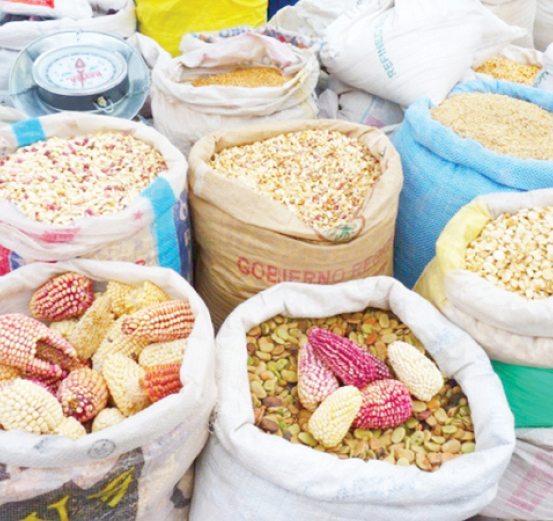The Coalition of Northern Groups (CNG),has expresses deep concern over the indiscriminate rise in prices of essential commodities in Nigeria.
Daily Trust reports that citizens across Nigeria have expressed concern over the rising prices of essential commodities such as rice, flour, sugar and cement. This is just as the naira continues to suffer depreciation, thereby reducing the purchasing power of the people.
In a statement on Tuesday, Jamilu Aliyu Charanchi, National Coordinator of CNG, said the situation had left Nigerians in a state of despair.
Charanchi said despite the existence of the Consumer Protection Board, “which should safeguard the interests of the people, the inaction on their part has only worsened the situation, fueling frustration and anger among citizens.”
The inaction, he said had further aggravated the suffering faced by the majority of Nigerians, while a privileged few continue to live in opulence.
The statement read in part: “The exorbitant hike in food prices in Nigeria is not a result of natural market forces, but rather the self-serving interests of unscrupulous elites. These elites have manipulated the forex market, causing a scarcity of foreign exchange and subsequently driving up the cost of importing essential food items.
“The current forex racketeering and hikes in commodity prices can be attributed to officials from the previous administration who are seeking to conceal their ill-gotten wealth. These individuals are converting their looted funds into foreign currencies, particularly dollars, as it is easier to hide large sums in foreign currency. Additionally, these officials are responsible for hoarding foreign currencies, creating an artificial scarcity that fuels the demand and subsequently increases the prices of essential commodities.
“The CNG firmly believes that the individuals responsible for the current hardships faced by Nigerians are those who have historically received substantial unregulated allocations of foreign currencies from the government. However, with the government now closing the doors on such practices, these individuals have resorted to manipulating commodity prices to maintain their profits.
“Additionally, influential business holders who control production and importation further contribute to the prevailing difficulties. These individuals, often operating within monopolistic structures, have a significant influence on the availability and pricing of essential commodities. By controlling the supply chain, they can dictate prices and exploit the market to their advantage.
“In addition to these factors, the CNG finds it unacceptable for the government to complicate the situation further with multiple taxation. The Nigerian Customs Service, among other agencies, imposes excessive taxes and levies on businesses, hindering their growth and increasing the cost of goods. This burden is ultimately passed on to the consumers, exacerbating the already high prices. Moreover, the recent hikes in tariffs for utilities, such as electricity, only add to the financial strain faced by Nigerians.
“In light of the prevailing circumstances, the Coalition of Northern Groups calls for swift and decisive action from the Federal and State Governments. It is imperative that these manipulative practices are exposed and those responsible are held accountable. We demand that the government identifies, exposes, and prosecutes those individuals responsible for the current hardships imposed on its citizens.
“Furthermore, we urge the government to recognize the adverse effects of excessive taxation and tariff hikes and take immediate steps to review and reverse these policies. This action will alleviate the financial burden faced by citizens and create an environment conducive to economic recovery.
“We demand that a national executive council meeting be convened, bringing together representatives from the Central Bank of Nigeria, banking and financial institutions, Bureau De Change operators, and other stakeholders. Urgent action is needed to address the free float of the naira and other damaging policies that further impoverish the majority while enriching a few.
“The time for action is now. Failure to take urgent measures may result in national chaos as the frustration and anger of the people reach a breaking point, potentially leading to a complete breakdown of law and order.”

 Join Daily Trust WhatsApp Community For Quick Access To News and Happenings Around You.
Join Daily Trust WhatsApp Community For Quick Access To News and Happenings Around You.


